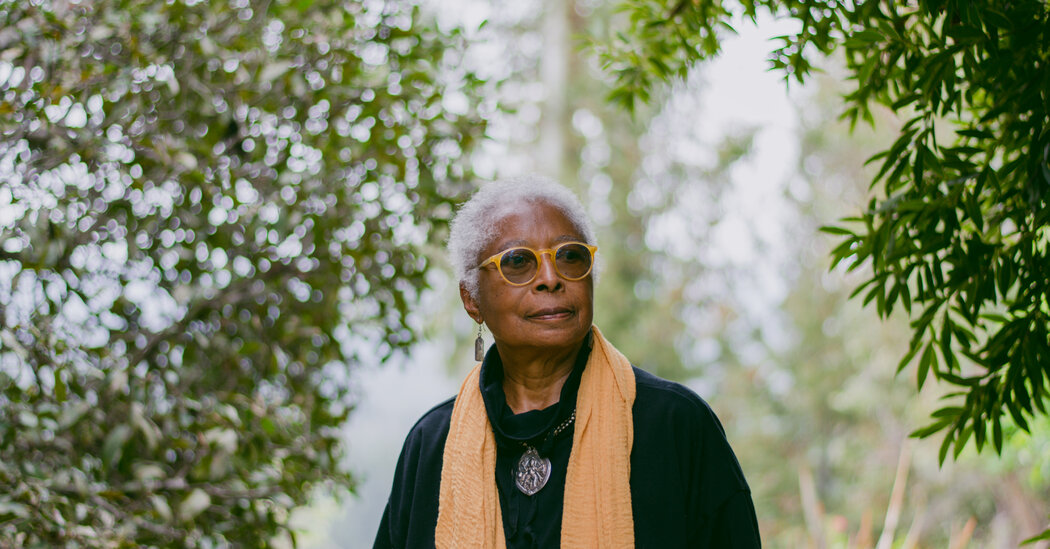
“Are Goyim (us) meant to be slaves of Jews,” she writes, “and not only / That, but to enjoy it?”
Jewish organizations, among others, have called Walker’s public support of Icke and her own poem dangerous and harmful. Privately, some in Walker’s life have said her embrace of Icke is mystifying. Several academics contacted for this article were reluctant to discuss the topic. In an interview, Leventhal, Walker’s ex-husband, said there was no evidence during their marriage that she harbored any antisemitic sentiments.
Walker, when asked, said that her criticism is not of Jewish people but of Israel, as well as of the ancient texts and practices of all religions, including Christianity, Islam and Buddhism. The poem about studying the Talmud also points to the need to “study our programming” from other religions as well.
“Do we really want to continue as humans with these old doctrines of separation?” she said. “The Bible is no more exempt than any of these horrid, really treacherous tomes that people are forced to endure, especially women.”
There are good things to be found in religion, however, she said.
“All the savagery, you have to get through all of that to get to these little gems of compassion and kindness,” she said. “Over here somewhere, hidden in all that, it’s all about generosity and love and equanimity and kindness and peace.”
Thadious Davis, a professor the University of Pennsylvania and a scholar of Walker’s work, said that the public criticism has not left Walker unscathed. While the recent controversy has taken place in “the white world,” she said, and has been more visible in the mainstream media, the outcry over “The Color Purple” was equally large.
“It was enough to send her into a depression, and ultimately therapy,” she said. That period “really led her to go deeper inside herself and search for other means of validation, for meaning.”



